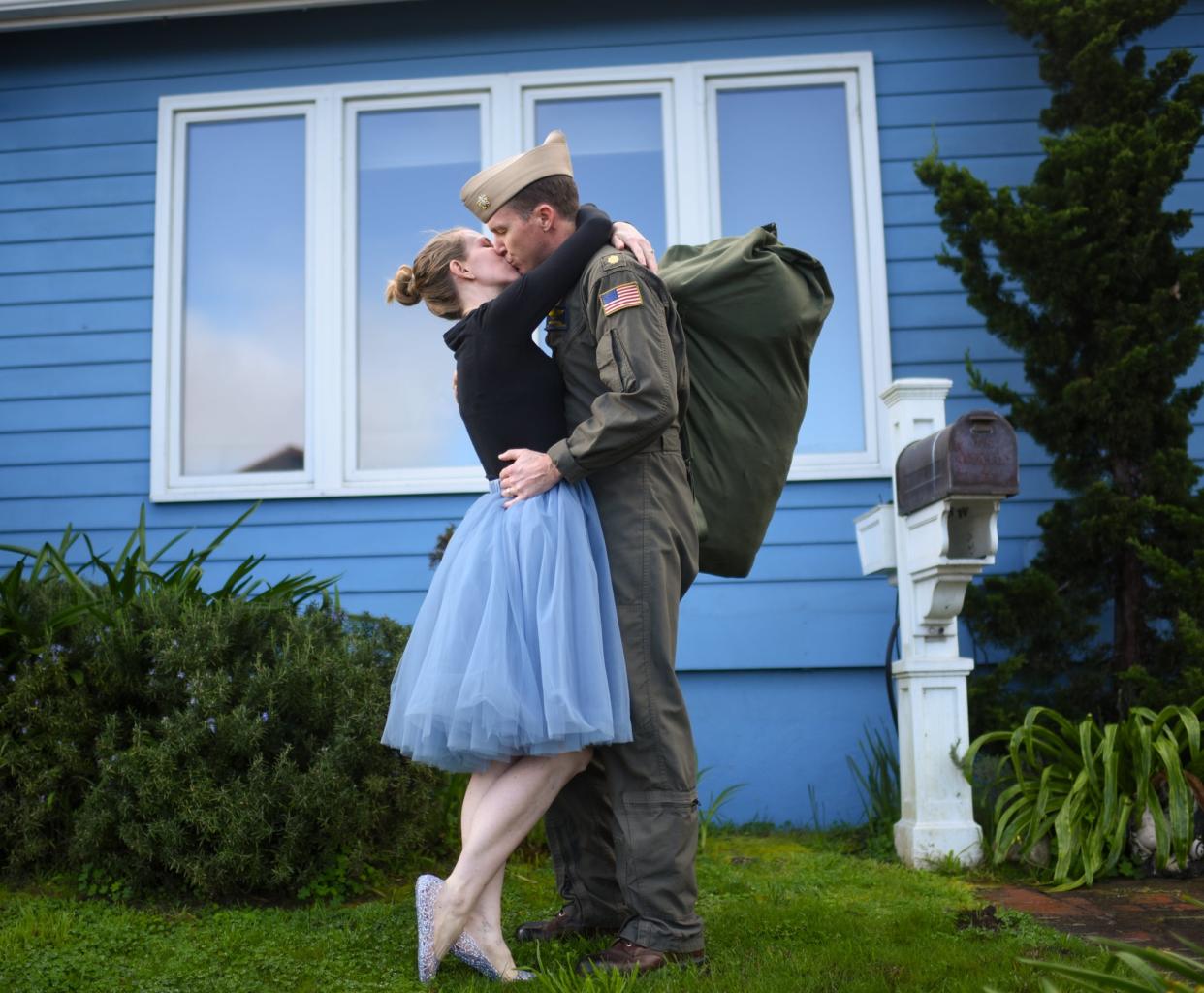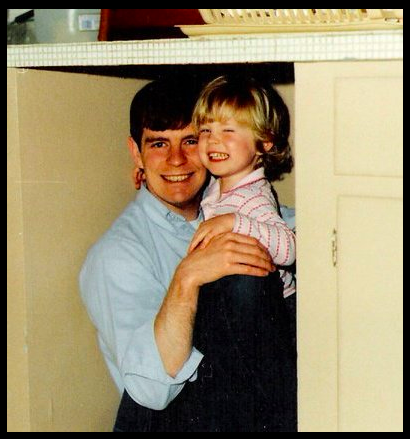I’m a military wife whose father was in the World Trade Center. Let me tell you about patriotism in this election

Election season is in full swing. Americans are sharing socially distant political opinions on social media, brandishing words like “patriotism” to describe what drives and informs their decisions. As both a military spouse and a daughter of someone who lived through the terrorist attacks of 9/11, I, too, am driven by a deep sense of patriotism — but that may look different from what you might expect.
My dad was in World Trade Center One on that clear Tuesday morning in September 2001 and survived. I usually spend the weeks surrounding that anniversary being thankful that my dad lived to walk me down the aisle and hold his three grandchildren.
But as we approach another post-9/11 election, I also reflect on the way that day changed my present outlook on the issues I care and vote about. I live each day in the shadow of that tower because I’m married to the US Navy.
I grew up in New Jersey in the 1980s. My mom raised me on Jesus and my dad raised me on Fox News.
After September 11, patriotism soared in our coastal town. Everyone who knew my dad’s story told us things like “we’ll get them” and “they will pay.” We all understood who “we” was.
“We” was the military, and the military was present. In the hours and days after the terrorist attacks, I felt comforted by the roaring sounds of F-15s as they patrolled the coastline nearby. They were there, protecting us. And they are still there today.
Three years later, I met the man of my dreams: a naval aviator-select at the US Naval Academy. Since 9/11 I came to see military service as something tangible and vital. I wanted to serve my country in my small way by loving someone in the military.
But somewhere between 2001, our marriage and today, I began to view patriotism through a more complex lens.
Our country has been at war for 19 years, slamming my childhood experience with terrorism into my adult reality. Less than one percent of our population faces the reality of loving someone in our wartime military. But our community lives out the consequences of 9/11 one deployment, one death, one day at a time.
Every time my husband comes home from work during a “shore tour,” I remember the days when he was gone. I remember the phone call telling me he survived a helicopter crash. I remember nights when he didn’t land on time, leaving me to wonder if the worst had happened. I remember the pit in my stomach every day of a deployment, worrying about him not coming home to father our three children. And I know that every time he comes home safely, there are others who live out my worst nightmare. Their spouses never come home. My life feels like a game of Russian roulette, hoping it’s not my turn.
And devastatingly, I know more people who lived and died serving in a post-9/11 military than I know people who died in that tower. This is the legacy of September 11 that I live with every day.

When I was young, my dad could take on the world, and sometimes he did. He walked out of the tower covered in white ash and helped his coworkers escape death. My love for him and our country made me feel like a patriot.
But the world needs more than just one type of patriot. Rather than knocking down doors in Afghanistan, we need leaders whose diplomacy and compassion for the humanity of our military families preempts the need for force.
Commanding the American military isn’t like playing Battleship. People die. Families are separated. Mental health suffers. Children experience learning gaps. Military spouses are unemployed or under-employed. There is a prolonged cost. And because we’re a small community, we’re collateral damage and easy to forget. But do we have to be?
Covid-19 has taught us many lessons about what services and supports our country needs: schools, medical care and a government that can operate collaboratively. I truly hope — both for my family’s sake, and for the families who serve after us — that the United States focuses less on deploying service members to a distant desert and more on strengthening the home front.
Instead of simply thanking a service member for their sacrifice, befriend one. Meet their families. Get to know us. By doing so, you’ll learn that we are as diverse as the communities we come from. We are liberal, conservative and apathetic. We are more than just a photo op. We want to elect leaders who will make decisions worthy of our sacrifices, and we need your help.
I know what it is to fear for those I love. I know the true cost of those who fight. They fight for those who, on one Tuesday morning in September, could not fight for themselves.
Jennifer Barnhill is a Navy spouse of 14 years and mother of three. She is the Chief Operating Officer for Partners in PROMISE, Secure Families Initiative volunteer and serves on the National Military Spouse Network Storm the Hill 2020 Steering Committee

 Yahoo News
Yahoo News 
